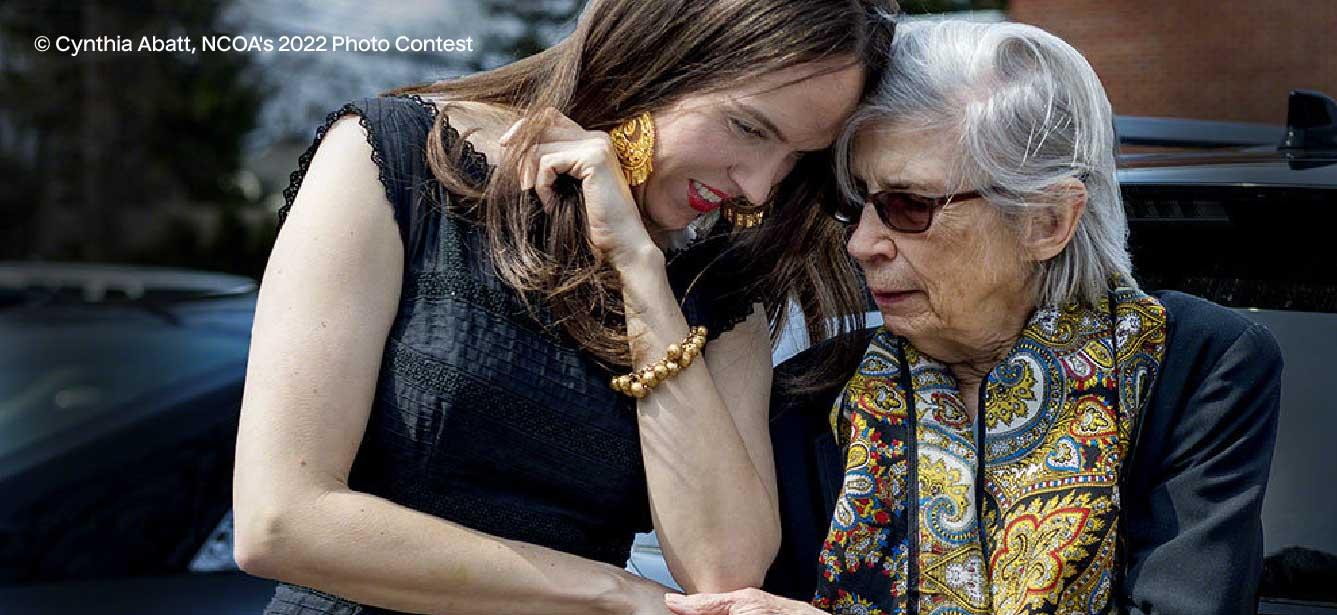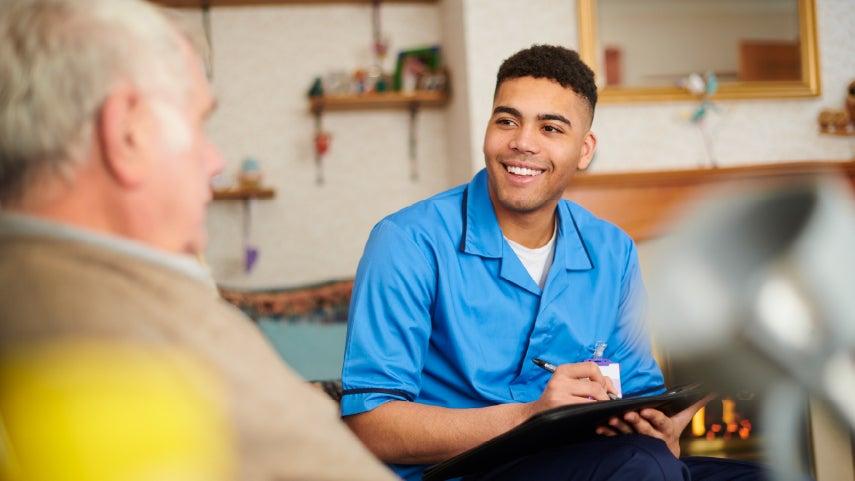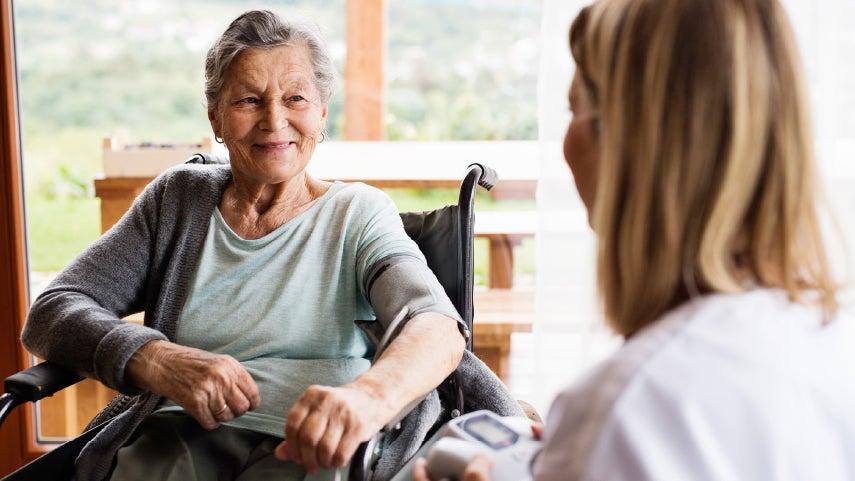
Related Topics
While family caregiving can be a privilege and a rewarding opportunity, caregiving can be a tough job, sometimes thankless and costly. These responsibilities often leave caregivers overlooking their health and well-being.
When our nation’s caregivers suffer, are unhealthy, and unsupported, our country’s older adults and individuals who are ill, frail, and disabled also suffer. In contrast, when our nation’s family caregivers thrive because their loved ones have access to paid support, respite care, peer connections, and necessary therapeutic and medical care, our country thrives.
What is National Family Caregivers Month?
Celebrated since 1994 each November, National Family Caregivers Month is a time to recognize America’s many kinds of family caregivers who care for people of all ages who need help in their daily lives.
Today in America, there are over 53 million family caregivers providing unpaid care,1 which is an economic value totaling more than $470 billion.2 As Judith Awanski and Lawrence Stuntz so eloquently wrote in a Harvard Law Bill of Health blog post last year, "To help these caregivers, we need a cultural shift that allows us all to recognize, honor, and support the family caregivers in our daily community and work lives."3
Family caregivers are the safety net
The work done by family caregivers has long been the safety net of the American long-term care system. Family caregivers are advocates who:
- Work tirelessly to keep people in their homes for as long as possible and out of expensive nursing homes
- Fill in the gaps when an in-home care worker is absent for scheduled visits
- Attend doctor’s visits and help give care recipients a voice
- Function as chauffeurs to and from medical appointments, pharmacy trips, and grocery store runs
- Miss sleeping many nights in a row to ensure their loved one with dementia does not wander away
- Provide personal care for bathing, dressing, and grooming.
Often, family caregivers even tend to complex medical tasks typically performed in hospitals by nursing staff, including medication management, wound care, and even observing pulse oximeters and ventilators for signs of respiratory distress.
How to show support to family caregivers
If you were called upon to offer care to a loved one, how would you manage? What would you need as a family caregiver to carry on? Consider these questions, as it is likely that each of us will be a caregiver one day. Writer, advocate, and former First Lady Rosalynn Carter famously declared, “There are only four kinds of people in the world: those who have been caregivers, those who are currently caregivers, those who will be caregivers, and those who will need caregivers."4
In honor of National Family Caregivers Month, we encourage every person to reflect and identify the friend or neighbor in their life who is in the role of a family caregiver. Family caregivers need you! Be open and intentional about offering support. This could mean doing a household chore, lawn care, or laundry, providing a meal, making a grocery run, or lending an empathetic ear. Most importantly, offer them grace and flexibility when with them at work, church, or family gatherings.
To further show support, explore these national resources and share them with those family caregivers in your life: Caregiver Action Network, The National Alliance for Caregiving, and Share The Care.
And check out this "Faces of Caregiving" video courtesy the U.S. Administration on Community Living:
Sources
1. National Alliance for Caregiving and AARP. Caregiving in the US 2020. Found on the internet at https://www.caregiving.org/research/caregiving-in-the-us/caregiving-in-the-us-2020/
2. AARP. Valuing the Invaluable 2019 Update: Charting a Path Forward. AARP Public Policy Institute. Nov. 14, 2019. Found on the internet at https://www.aarp.org/ppi/info-2015/valuing-the-invaluable-2015-update.html
3. Judith Iwanski and Lawrence Stuntz. Family Caregivers' Critical, Overlooked Role in Our Health Care Workforce. Bill of Health. Harvard Law School Petrie-Flom Center. Found on the internet at https://blog.petrieflom.law.harvard.edu/2021/04/12/family-caregivers-critical-overlooked-role-in-our-health-care-workforce/
4. The Carter Center. Written Testimony of Former First Lady Rosalynn Carter Before the Senate Special Committee on Aging. May 26, 2011. Found on the internet at https://www.cartercenter.org/news/editorials_speeches/rosalynn-carter-committee-on-aging-testimony.html



